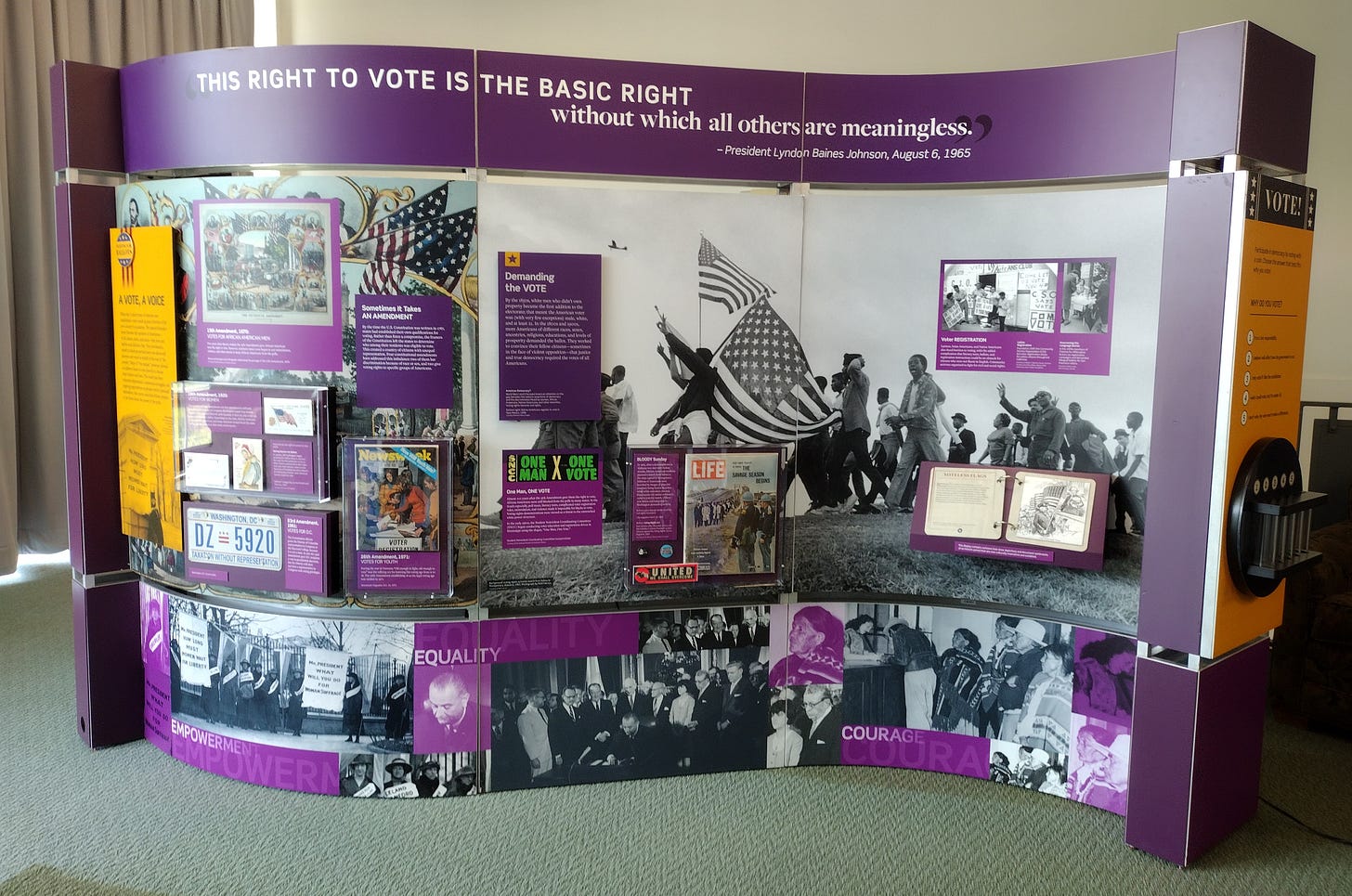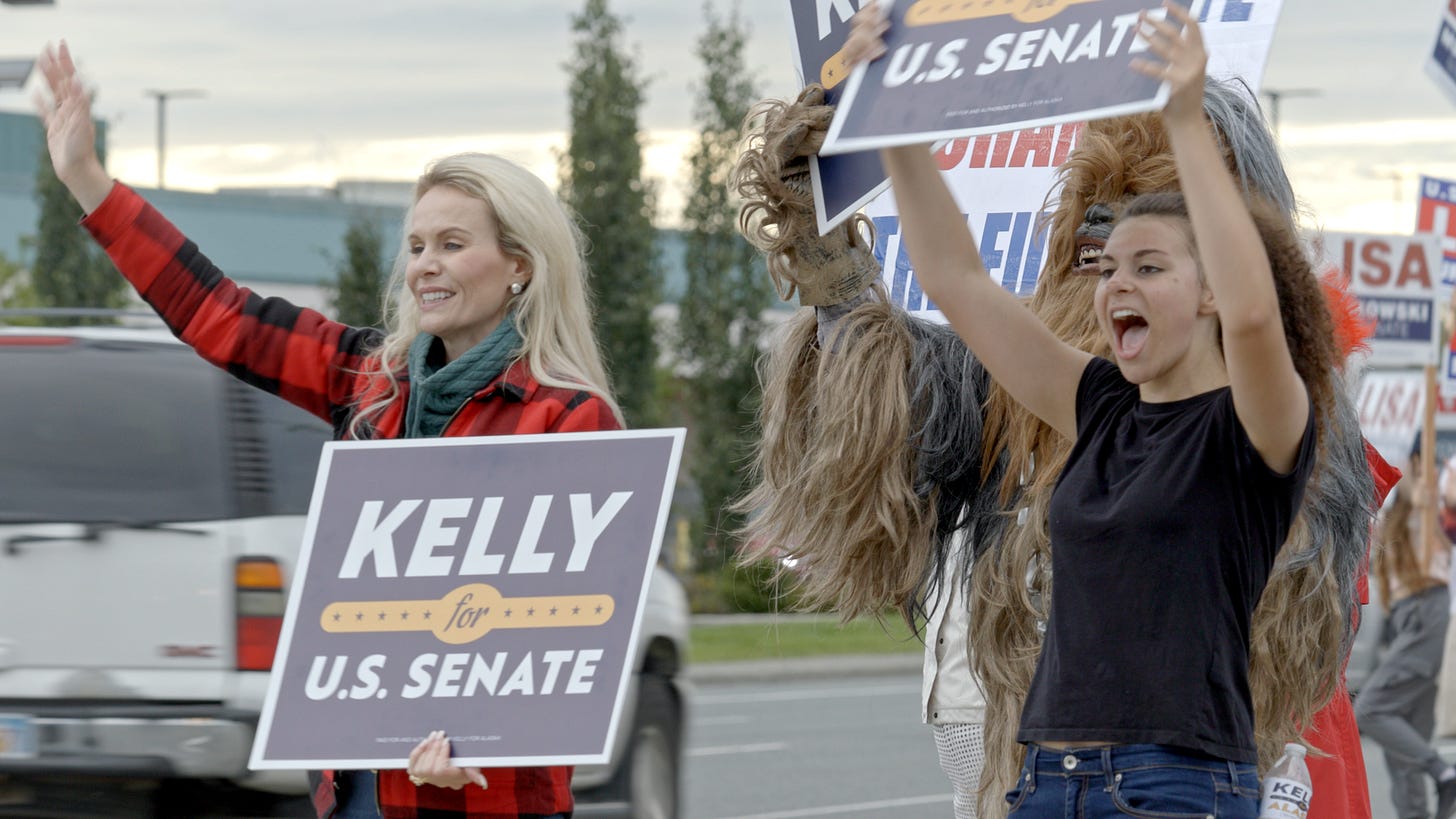Majority Rules
Screening & Discussion August 16th
The ultimate goal of a political documentary is to spark conversation and action. Director AJ Schnack has been on a mission to get his documentary Majority Rules screened in as many communities as possible. Schnack is known for making non-partisan documentaries that explain political processes. Although his latest film is strictly non-partisan, it has a strong activist message. The goal is to pitch ranked choice voting as a reform that can radically improve our democracy. It was released in the summer of 2024 with the intention of reaching voters in the November 2024 election; election reform initiatives were on the ballot in a handful of states. Although those elections have long past, there are still dozens of states and municipalities that might be considering ranked choice voting.
On August 16th at 1:30 PM I will be hosting a screening and discussion of Majority Rules at The Ashby Free Public Library. The screening is one of several events connected to the Voices and Votes Smithsonian Exhibition, which is at the library now through September 6th. This traveling exhibition showcases the history of voting in the United States. It details voting in the drafting of the constitution, explains the Electoral College, and illustrates how different states run elections. The exhibit moves chronologically through history documenting the fight for constitutional amendments and legislation to ensure all citizens the right to vote. It is a great introduction to The Women’s Suffragist and Civil Rights Movements.
The end of the exhibit briefly touches on a major threat to voting rights today – gerrymandering. Gerrymandering is the process of creating voting districts based on voter data in order to favor a certain political party. Politicians select their voters and therefore create uncompetitive districts. Because of this, many voters feel like voting doesn’t matter. Majority Rules argues that ranked choice voting (RCV) is a potential remedy to this unfair system. RCV ensures that the winner of an election receives the most votes. A voter ranks candidates according to their personal preference. The ranking system creates an instant run-off if one candidate does not receive more than fifty percent of votes. For example, if a voter’s first choice has such a low percentage that they have no chance of winning, then their second choice vote is used, and so on. RCV creates more competitive elections in partisan strongholds and also makes it possible for independent and third-party candidates to be viable in elections.
The production team traveled across the United States highlighting different ballot measures to expand ranked choice voting and open primaries in Washington, D.C., Nevada, Oregon, and Idaho. In between it jumps back and forth to a compelling frame story of the 2022 mid-term elections in Alaska. It is the state's first election with RCV and an open primary. (An open primary system means all candidates of different parties appear on the same ballot.) It follows two competitive congressional races: Mike Begich III (R), Sarah Palin (R), and Mary Peltola (D) are running for Alaska’s sole seat in the US House of Representatives, while Lisa Murkowski (R) and Kelly Tshibaka (R) are running for a seat in the US Senate.
The candidates have radically different views and agendas, but Schnack gives them equal deference. His main focus is on observing how this new voting system changes the way they campaign and govern. Many of the featured participants working on RCV initiatives are not diehard Democrats or Republicans. This non-partisan approach may seem quaint during a time of extreme polarization in the United States, but I still think there is value in trying to be objective about issues like election reform that impact everyone. This may sound hypocritical coming from a Substack called The Subjective Observer, but not every cause is well served by a personalized and passionate viewpoint. Persuasion sometimes requires being able to make a compelling argument in a rational and non-judgmental way. Schnack succeeds in making the case that RCV gives all voters a greater choice in elections.
If you are in the area, then I hope you’ll join me for the screening and lively discussion on Majority Rules.



